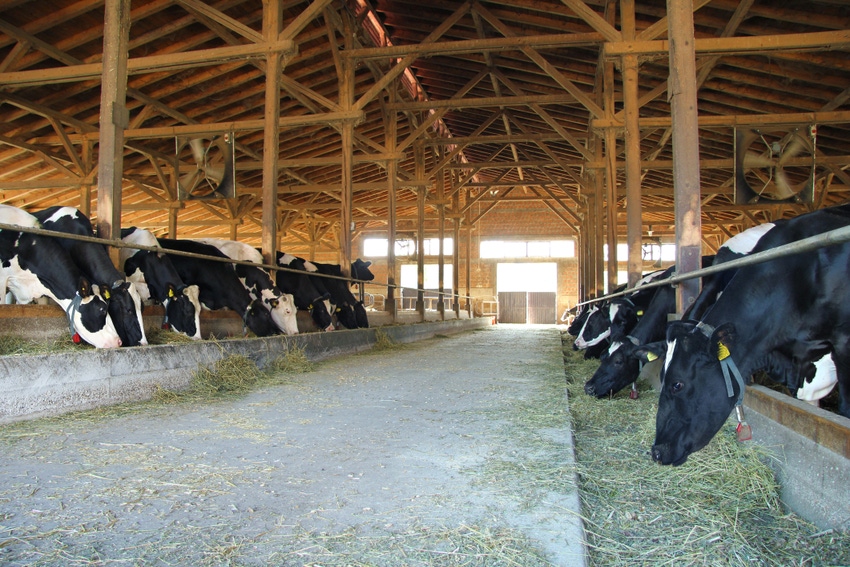Decision ensures that landowners and developers may rely on existing zoning when planning projects without fear that a local municipality will change its zoning laws.
June 6, 2018

Golden Sands Dairy in Saratoga, Wisc., has been given the green light on its expansion plans after the Wisconsin Supreme Court determined that filing a building permit application grants landowners a vested right to use all of the property specifically identified in the application in a manner consistent with zoning that applies to the area at that time.
An April 2017 decision by the District IV Court of Appeals stated that Golden Sands Dairy would not be able to use more than 6,000 acres of nearby land for manure spreading or other agricultural purposes because of a local ordinance instituted by the local township board.
The dairy sought approval to house 5,300 animals on the site, which would generated 55 million gallons of liquid manure and another 25,000 tons of solid waste each year.
According to a client alert from Michael Best, the decision ensures that landowners and developers may rely on existing zoning when planning projects without fear that a local municipality may defeat the property owners’ reasonable expectations by later changing its zoning codes to prohibit the planned use.
In the case, Golden Sands Dairy LLC (Golden Sands) filed an original building permit application with the Town of Saratoga (Town) in Wood County, Wisconsin on June 6, 2012. Golden Sands’ application detailed a plan to construct seven structures where dairy cows would be raised for milk production. The application also specifically identified land that would be used to grow feed and land apply manure as a beneficial nutrient. At the time the building permit application was filed, the Town had no zoning ordinance in place. Wood County’s zoning ordinance placed no restriction on the use of the land identified by Golden Sands for its dairy farm.
In October 2012, the Town of Saratoga adopted a zoning ordinance that did not allow agricultural use on any of Golden Sands’ previously unrestricted land, effectively zoning out the proposed project.
Under long-standing and recently upheld Wisconsin law, the filing of a building permit that strictly conforms to all applicable zoning regulations creates a vested right to use that property. The Michael Best client alert explained this rule, known as the “bright-line Building Permit Rule,” protects a landowner’s right to use property in accordance with applicable zoning codes at the time a conforming building permit application is filed. The Building Permit Rule avoids the obvious unfairness that would result if a municipality were permitted to change the rules after a private party expends time and, in many cases, substantial resources planning its project.
In the Golden Sands case, the Town of Saratoga argued that the Building Permit Rule only protected Golden Sands’ right to construct the seven buildings that were included in Golden Sands’ plan. Reversing a lower appeals court, a five-Justice majority of the Wisconsin Supreme Court held that Wisconsin’s Building Permit Rule “extend[s] to any land specifically identified in the building permit application as part of the project.” As a result, Golden Sands acquired a vested right to use all of the property (including land identified for growing crops) in accordance with zoning regulations in place at the time it filed its application.
The Court reasoned that a contrary result would “piecemeal” business activities conducted on a parcel of land and defeat the reasonable expectations of property owners. “Further, for any business that requires land in addition to structures for its operations, a building permit is nearly worthless if the rights vested by virtue of obtaining a conforming building permit do not extend to the land necessary to put the structures to their proper use.” Thus, Court concluded that “the primary policy underlying the bright-line Building Permit Rule—predictability—is best advanced by applying the rule to all land specifically identified in the building permit application.”
The ruling effectively harmonizes Wisconsin’s common law of vested rights with a state statute on property development rights passed in 2013. The statute freezes the zoning rules in place at the time developers submit their applications for a project. While that statute did not apply retroactively to the Golden Sands case, Golden Sands successfully argued that the policy behind that statute was the same policy underpinning the state’s common law of vested rights.
The case is captioned Golden Sands Dairy LLC et al. v. Town of Saratoga et al., 2018 WI 61. Golden Sands was represented in the case by a team of Michael Best attorneys and professionals.
You May Also Like


.png?width=300&auto=webp&quality=80&disable=upscale)
